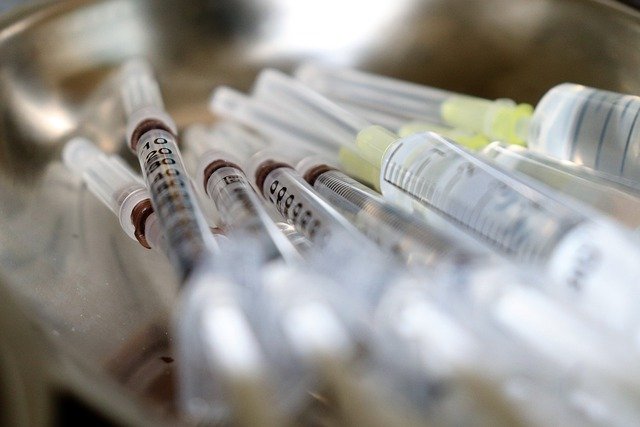As fall comes to a close and winter ushers in, the federal government is reminding nursing home operators that they must provide residents access to the latest Covid vaccines and treatment.
The Centers for Medicare & Medicaid Services (CMS) issued a memo Tuesday outlining the need for health care providers and suppliers, especially those in congregate care settings like nursing homes, to provide timely access to Covid-19 therapeutics to residents who test positive for the virus — in addition to vaccines.
“Nursing homes, in particular, should review and reinforce their infection control protocols as we move into fall and winter, when respiratory infections are more commonly transmitted,” CMS wrote. “In addition to mitigating opportunities for transmission of Covid-19, nursing homes should ensure residents receive (in consultation with their physician and family) appropriate treatment when tested positive for COVID-19.”
The U.S. Department of Health and Human Services (HHS) Assistant Secretary for Preparedness and Response back in March allowed long-term care pharmacies to direct order Covid antivirals to facilitate increased access for long-term care residents.
Facilities that are at risk of seeing an outbreak can also order a supply of oral antivirals in advance, according to the memo.
When it comes to vaccines, while more than 86% of nursing home residents had completed their initial series of Covid shots, only 43.8% of residents are considered up to date on their vaccines.
“The agency is particularly disappointed that some facilities are reporting that zero residents have received the updated bivalent vaccine, and we will be looking closely at these facilities,” CMS said in a statement. “Moving forward, CMS will also continue to look closely at outbreak status and where poor outcomes are occurring at the nation’s nursing homes.”
AHCA/NCAL President and CEO Mark Parkinson and LeadingAge President and CEO Katie Smith Sloan issued a joint statement following CMS’s memo, pointing to the fact that resident vaccination rates are nearly four times higher than the “dismal” 11% rate among the general public.
“We all share the same goal: ensuring the health and wellbeing of older adults. We believe we can continue to increase that booster rate and to do so requires a shared commitment from the government and other health care providers. For example, 90 percent of residents are admitted to nursing homes from hospitals, and very few of those residents are current on their vaccines upon admission. Through collaboration with hospitals, vaccine numbers can be improved,” the joint statement read.
“We look forward to working with the administration, and we will continue our tireless efforts to protect the health of our residents,” they added.
Some states are further behind than others, according to an AARP analysis of federal data as of mid-October. Arizona, for example, has only 15.2% of staff and 22% of residents considered up to date on their vaccinations. North Dakota, on the other hand, has 60.9% of residents but only 18.5% of staff that are up to date, according to the analysis.
California led the way in staff vaccinations with 54% of workers considered current on their boosters.
A study conducted by the Commonwealth Fund last month found that if vaccination continued at its current pace, the country faced a potential winter surge of Covid infections that could result in 16,000 hospitalizations and 1,200 deaths per day by March 2023.
Earlier this month, 22 states filed a petition asking CMS to repeal its health care worker vaccine mandate.
The group of attorneys general, led by Montana Attorney General Austin Knudsen, filed a petition under the Administrative Procedures Act, calling on the U.S. Department of Health and Human Services and CMS to repeal its interim final rule and state surveyor guidance.



